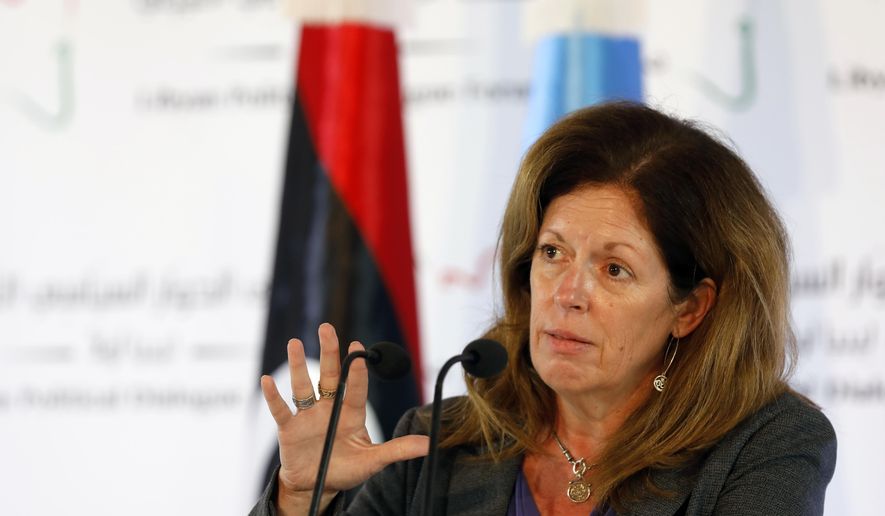CAIRO (AP) - Libya’s rivals began a second round of talks Monday on a mechanism to choose a transitional government that would lead the conflict-stricken country to elections in December next year, the United Nations said.
U.N. acting envoy for Libya Stephanie Williams headed the online meeting of the Libyan Political Dialogue Forum a week after the first round of the talks in Tunisia failed to name an executive authority.
The 75-member forum reached an agreement to hold presidential and parliamentary elections on Dec. 24, 2021. They also agreed to name a volunteer legal committee to work on the “constitutional basis for the election.”
“You made significant steps forward and raised the Libyan people’s hopes and expectations for the holding of national elections. There is much work left to be done to alleviate the suffering of Libyans,” Williams told the participants.
Libya is split between a U.N.-supported government in the capital, Tripoli, and rival authorities based in the east. The two sides are backed by an array of local militias, as well as regional and foreign powers.
The next virtual meeting was scheduled for Wednesday “to allow participants to study the selection options” presented in Monday’s gathering, the mission said in a statement without offering details.
The political forum was the latest effort to end the chaos that engulfed the oil-rich North African nation after the 2011 overthrow and killing of dictator Moammar Gadhafi.
The U.N. mission in Libya said last week it was investigating allegations of bribes paid to some participants in the forum to vote for certain names to be part of the transitional government. The mission did name anyone but vowed to impose international sanctions on anyone obstructing the talks.
The forum took place amid a heavy international push to reach a peaceful settlement to Libya’s conflict. Previous diplomatic initiatives have all collapsed.
The warring sides agreed to a U.N.-brokered cease-fire last month in Geneva, a deal included the departure of foreign forces and mercenaries from Libya within three months.
No progress was announced on the issue of foreign forces and mercenaries a month after they inked the cease-fire deal. Thousands of foreign fighters, including Russians, Syrians, Sudanese and Chadians, have been brought to Libya by both sides, according to U.N. experts.
In a show of support to the U.N. mission, France, Germany, Italy and the U.K. on Monday threatened to “take measures” against anyone standing in the way of talks aimed at ending the conflict, without specifying.
In a joint statement, the four European countries urged the Libyan parties to “fully implement the ceasefire agreement,” and find an agreed on “mechanism for the fair and transparent use of oil revenues.”
Forces loyal to Khalifa Hifter, a commander allied with authorities in the east, announced in September an end to a months-long blockade of the country’s vital oil fields and terminals.
Meanwhile, a militia allied with the Tripoli-based government attempted to break into the country’s National Oil Corporation headquarters in the city, the company said Monday.
NOC said in a statement that forces guarding the building managed to thwart the attack without casualties or damage. It gave no additional details.




Please read our comment policy before commenting.